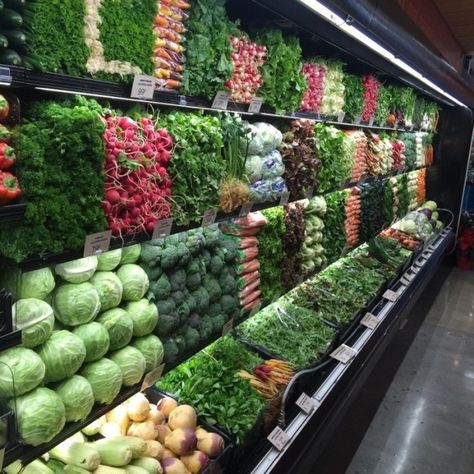Why you must not use sanitisers to wash vegetables and fruits?

How can you ensure the virus is not transmitted through home-delivered food, medicine strips, and packaged items? As offices reopen, what should you be careful about?
A lot has been said and written about the do’s and don’ts of the novel coronavirus pandemic, but some basic questions about day-to-day living continue to be asked. Dr Sonu Goel, Professor at the Department of Community Medicine and School of Public Health at Post-Graduate Institute of Medical Education & Research (PGIMER), Chandigarh, clarified some common doubts and misconceptions to Hina Rohtaki of News Agency.
Almost all shops have been allowed to open in the latest phase of the lockdown that began on Monday (May 18), and many of us will again start going to the market in the normal fashion. How can we ensure vegetables and fruit are safe?
This virus is generally likely to remain active on fruit and vegetables for 6-8 hours, but for less than four hours if the fruit and vegetables are exposed to heat. As a general rule, try to not handle vegetables and fruit immediately after you bring them in — rather, keep them aside within the packets that you bring them in, for at least four hours. (This obviously means planning a little ahead for your shopping.) After this time, dispose of the packets and soak the vegetables and fruit in warm water for a while. For complete safety, wash them in warm water and a little baking soda.
Some people have been spraying vegetables and fruit with sanitiser.
Sanitisers are absolutely not recommended for vegetables and fruit. There is no evidence that the sanitisers can kill the virus on the surface of vegetables and fruit; besides many vegetables and fruits have wrinkles and depressions on their surfaces that sprays cannot reach.
Sanitisers are useful only for our hands, body, and metal or steel surfaces. They have chemicals that can be harmful if ingested. Warm water is sufficient to wash vegetables and fruit. You can add a drop of potassium permanganate in the water and dip the vegetables and fruit in it. It is the safest, and does not cost much.
If potassium permanganate is not available, baking soda, as mentioned above, can be used in warm water. Wear a mask while washing the vegetables and fruit.
There are many companies that have launched “vegetable sanitisers”.
I am not aware of the composition of these sanitisers. If these have potassium permanganate, then they may be fit for use, otherwise not.
What about items like onions that cannot be dipped in warm water or washed?
Keep such items aside for 3-4 hours before handling them. The aim is to not expose yourself immediately to the virus, in case it is on the surface of these items. Wait before handling these vegetables or eating the fruit.
And what about things like cheese, butter and milk that cannot be kept outside for four hours?
Yes, it is hot and some items do spoil quickly, so use your common sense. If cheese and milk are packed, wash them with soapy water and immediately dispose of the outer packet in a way that no one in the family can be exposed to them.
In case the packaging is plastic or metal, such as cold drink cans, the virus may remain on the surface for 24-48 hours. Such items should not be refrigerated immediately, but kept at room temperature at a place where there is no human exposure. Wear your mask all through.
Is cooked food ordered from outside safe? What about cooked or baked food packed in boxes?
There is no problem with the food itself. If the cooking process is thorough, the virus will not survive it.
What is of concern is its handling — multiple people would have cooked, packed, and delivered it, and you have no control over their actions. If that makes you nervous, you should perhaps avoid ordering in.
But if you do order, make sure you discard the packaging, such as a pizza or cake box, safely and immediately. There is no evidence that sanitisers are effective on cardboard surfaces, and it is not advisable to use them.
How to sanitise medicine strips?
Again, there is no evidence that spraying them with sanitisers work. Just keep them in a closed box at room temperature for some hours. One should not get exposed to them immediately after buying them, as they too would have changed hands several times. Ensure that you do not put medicines in direct sunlight, as that would affect their efficacy.
What about other things like cash, stationery, clothes or shoes?
The virus cannot survive or remain stable on paper, cash, or books for long. Try to keep them outside for 2-3 hours before using them. Sanitisers may be of no use on these. Plastic or metal items like a pen or pencil box can be sanitised, as there is evidence that sanitisers work on them.
One should make sure that the shoes worn outside are not used inside the house, as there is a possibility that one could have stepped on an infected person’s spit or similar contaminated surface, while outside.
In case of purchase of new garments or shoes, they should be kept in the verandah or balcony for 48 hours. It is recommended that one should wash the new garments before wearing it.
Items delivered by courier or post, if packed in paper or cardboard, should also be kept in sunlight for 3-4 hours before being accessed. If the packaging is plastic or metal, you may disinfect it. Use your own pen to sign delivery vouchers, receipts, notices sent by housing societies, etc, rather than asking the delivery man for one.
As offices begin to open, and people start to go out, any specific do’s and don’ts?
As one steps out to go to office, one’s bag must contain:
* Your own cutlery, cup, or glass/bottle. Avoid using utensils from the pantry or canteen at your workplace, which may have been touched by multiple people.
* Carry your own charger or power bank, so that you do not have to borrow someone else’s.
* Carry your own pen and notepad. The virus can survive on the surface of a pen for 24-48 hours.
* Carry a bottle of hand sanitiser with the recommended alcohol content. Carry sanitised wipes, and wipe down the surface of your desk, keyboards etc before starting work.
* Wear your face mask at all times. Do not touch your face with your hands. Maintain social distancing at work.
* Avoid touching railings of stair cases, lift buttons, door handles, and other commonly used surfaces. If you do, sanitise or wash your hands with soap immediately.
* On coming home, ensure that you remove your shoes outside, sanitise your specs, goggles, pen and mobile phone surface. Remove clothes and put them in detergent water and change before interacting with the family. Make sure the room and washroom you change in is not used by anyone else for at least 6-8 hours.



